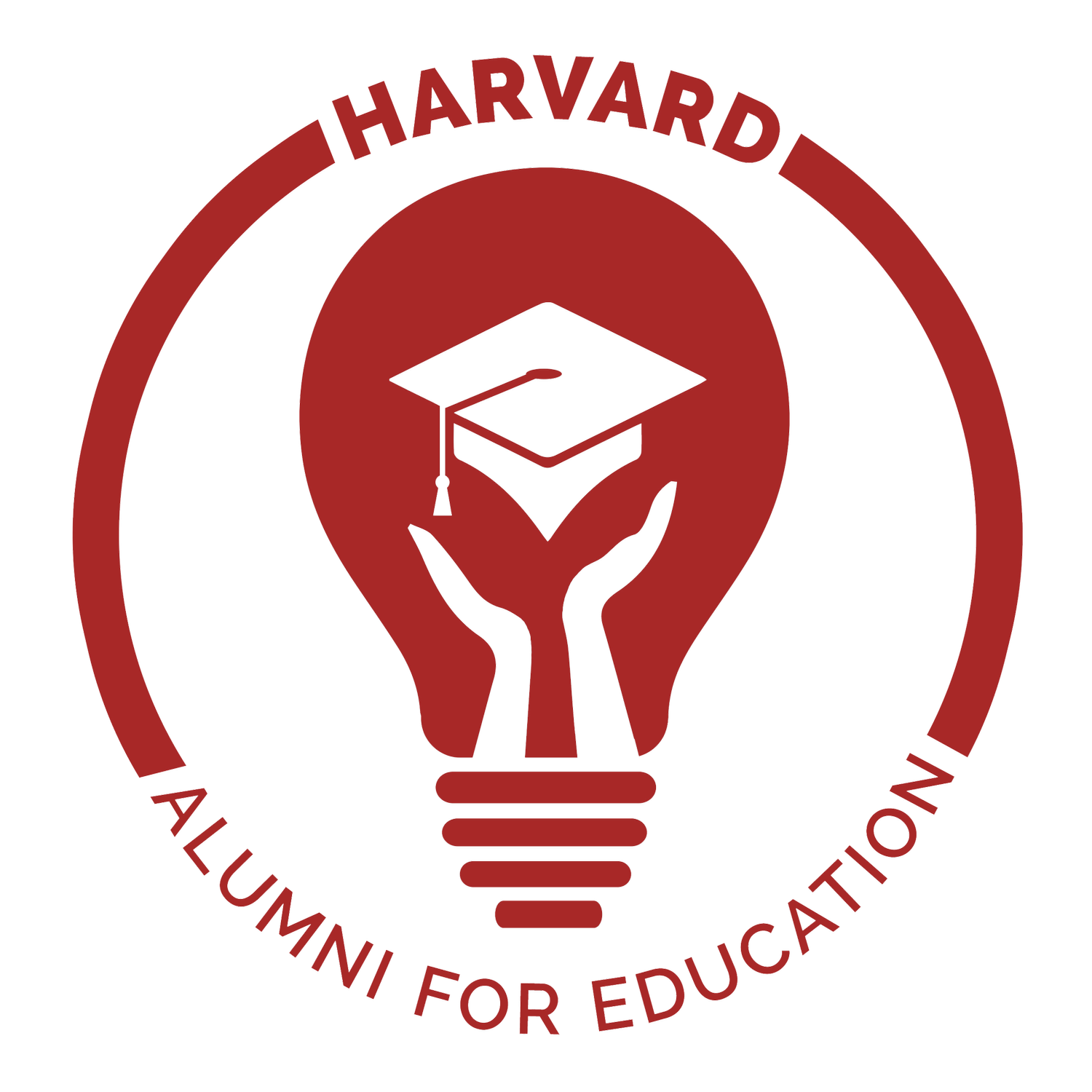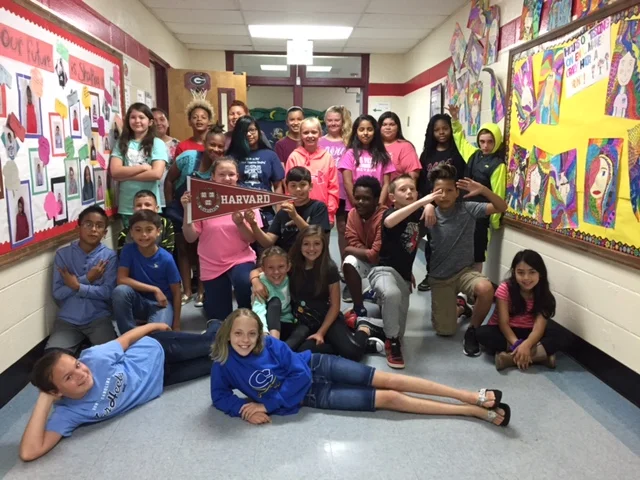Name: Neha Dalal
Current position: Operations and Program Coordinator, The Institute for College Access & Success; Vice Chair, US National Commission to UNESCO Youth Working Group
Degree/year: AB in applied math with a focus in education ‘16 / SM in applied math with a focus in economics ‘16
Tell us a little bit about your journey and experience working in education.
I moved around a lot growing up, spending time in New York, Texas, California, Oregon, and Massachusetts. I attended public and private schools, including Montessori and talented and gifted programs. And I had close family attending school in another country, India. So from a very young age, I directly experienced how much varying educational resources and quality impacted a kid like me.
At 16, I was admitted to Harvard. My first year, I took a public economics course with Raj Chetty and Marty Feldstein, two amazing teachers and mentors. Education, they convinced me, is the path to universal opportunity. Moreover, it may finally be on the precipice of reaching this ideal, as it draws on advancements in a wide array of fascinating fields: public policy, psychology and neuroscience, economics, and data science. After four years, I left Harvard with a bachelors and masters in a combination of math, economics, and education.
During and since, I have expanded my education expertise and impact through many different roles: federal policy development in the Obama and Trump White Houses, senior and founding roles in multiple education-related nonprofits, volunteer teaching and mentoring in seven countries, education-related economics research at Harvard, and organizing and representing youth in a variety of capacities. Today, I work on education policy and advocacy at a Washington, DC nonprofit. As the vice chair of the U.S. National Commission for UNESCO Youth Working Group, I also create opportunities for young people to impact the world around them. And I run a mentoring program that connects rising Harvard freshman with alumni.
I have been fortunate enough to have been recognized nationally and internationally for my work. I have advised city officials in the US and China on youth civic engagement, written op-eds, and been invited to speak in various capacities. Among other honors, I was named an Outstanding Women of the Year by India New England News and a Global Shaper by the World Economic Forum.
What are some of the important lessons you’ve learned along the way?
There are myriad, and I am still learning something new every day. But the lesson that stands out the most is to be bold. Had I never dared to believe that Harvard could admit me, I would never had applied and gotten in at 16. And today, if we do not dare to believe that we can achieve universal quality education, we never will.
More generally, it is not about how many times you succeed: it is about how many times you were bold enough to try, fail, and do it again. What is missing from what I have accomplished are the hours spent on ideas that went nowhere; dozens of applications that were rejected; myriad times I reached and failed; and people who never wrote back. A lot in this world is out of our hands, but we can still spin our own luck: by giving ourselves chance after chance after chance to play.
Tying this back to education, it deeply concerns me that a lot of our education system seems to be teaching kids the entirely opposite lesson. Most schools still harshly penalize students for failing, assigning them fixed, poor grades which translate to poor GPAs which are then penalized in future application processes. Unsurprisingly, many students balk from taking challenging, fascinating courses and learn to interpret failure as a definitive end point instead of an indication to try again. Instead, we need to inspire and empower them to be bold.
You were a staff economist at the White House Council of Economic Advisers. What was that like?
Incredible. I had the opportunity to cover education and other topics related to economic opportunity. It is hard to describe the thrill of spending your days in a supercharged, fast-paced environment; surrounded by people you deeply admire and like; influencing decisions with incredibly large-scale impact; and driving towards a dream you deeply believe. We made far less money than we could have elsewhere; worked far more than we were paid for; and learnt to check our phone every few minutes, even in the evenings and on weekends.
But there are few other places where a 21-year old could choose and write a daily economic briefing for the most powerful man in the world, brief top officials, meaningfully engage in policy deliberations, write public-facing White-House-branded white papers, serve as a bridge between academia and policy, and witness a historic presidential transition up close. Although I am still waiting for someone to correct me someday, to the best of my knowledge, I was the youngest full-time Obama White House staffer. Similarly, there are few places where you want to spend more time with people you have just worked a ridiculously long week together with. But my cohort got dinners most Fridays and remain among my closest friends.
What advice do you have for those interested in getting into education policy and/or advocacy?
1. Do it. Education is an odd field in that virtually everyone is intimately submerged in it five days a week for the majority of their most formative years, inevitably develops strong opinions on the efficacy of various strategies, then witnesses how it impacts them for the rest of their lives. Yet, a surprisingly small share of the population elects to enter the field. Without more talent, our progress is sharply constrained.
2. Surround yourself with good people. There are three reasons this is important. First, research tells us we reflect the people we spend time with, from our mood to our beliefs to our actions. Second, collaboration improves everything from ideation to impact. Build a community of friends and mentors who you can give ideas to and take ideas from. Third, policy and many other areas unfortunately still work largely through connections. This is compounded by unpaid internships and relatively low paying careers, making policy a daunting field for those with large financial obligations. So it is often your networks which will best lead you to a role.
3. Even if you cannot pursue a career in education policy and/or advocacy, there is still a lot you can do. For instance, I led my team at the US National Commission to UNESCO Youth Working Group to launch YouthCan, a platform of resources of those under 30 looking to become more civically engaged.
Feel free to reach out if there is anything I can help you with anything.
What are some of the issues you’d like to see addressed in education?
Ha. How many can I pick? For several years now, I have compiled such ideas in a google document, which is currently 47 pages, including links to several other equally long documents. Let’s say I had three wishes however.
First, invest more in early care and education. Research tells us early years are the most critical to development, yet they are grossly under-supported. Parents have the least earnings, savings, and credit when their kids are the youngest, and the public invests 76 percent more per teenager than infant or toddler. The devastating result? By kindergarten—the relatively arbitrary bound we often set for universal education—academic and social gaps are well-established and fail to close in later years. Instead, we need to extend our concept of a universal right to quality care, development, and education back to birth. I have written about this in more depth here.
Second, make teaching a prestigious job by paying teachers more, at the same level as doctors, lawyers, and programmers. We know the impact of education. We have identified teaching as the most important level that we can actually pull. Yet, we treat teachers as low-skill labor and then act surprised when kids perform poorly. Dramatically increasing teacher salaries will attract top talent and adequately compensate a high-skill, high-stress, high-impact profession. Like many of you, I have had teachers that changed my life, and it is ridiculous we do not value them accordingly.
Third, make more evidence-driven decisions. Like any field economics concerns itself with, education is a game of scarce resources. It would easy if we could invest in everything. But given limited funds, do you invest in K-12 education or higher education? Do you distribute additional funds to all students or just the most needy? Do you improve technology or counseling? Better data and robust research can help us understand the education production function, answer these questions, and identify the most effective interventions. For instance, recent research has highlighted the success of an array texting and mentoring programs at the early through higher education levels.
Where do you see yourself in 10 years?
Leading the design and implementation of large-scale solutions towards universal opportunity, particularly related to education.
There are many possible ways to do this. For example, it would be a privilege to run an organization that uses evidence-driven techniques to take such solutions end-to-end, including ideation, evaluation, replication, and national or global scaling. For instance, a potential idea that could be implemented and evaluated is regularly awarding a large number of top-performing teachers an award or tax credit of $25,000 each. A promising idea that is being evaluated and replicated is providing students mentoring and wrap-around services, such as via Project ASAP, which doubled graduation rates at the City University of New York and is now being replicated in Ohio. And a proven idea that is being scaled is state-funded preschool systems, which now cover 1.3 million 4-year olds in 43 states. But the advancement of such solutions is currently adhoc and irregular: a larger-scale, more systematic vehicle is needed. This can be best done through policy or through organizations such as the Gates Foundation or Chan Zuckerberg Initiative.
What are some things we wouldn’t learn about you from your resume?
I am a ninja-in-training and learn a combination of krav maga, grappling, and boxing. Also, for the past year, I have been on a mission to do something new (and exciting) every week. I have skydived and trapezed, ran 10 miles and modeled, quit my job and joined a startup. Suggestions and escapade partners welcome!
-----
This interview was conducted by Merisenda Alatorre, HAEd's Communications and Marketing Director.
Want to be featured as our next Alumni Spotlight or know someone who should be featured? Click here to nominate yourself or another alum!































